Cool Class: Systems & Design Thinking for Social Change
April 19, 2018
By Audrey St. Clair ’03
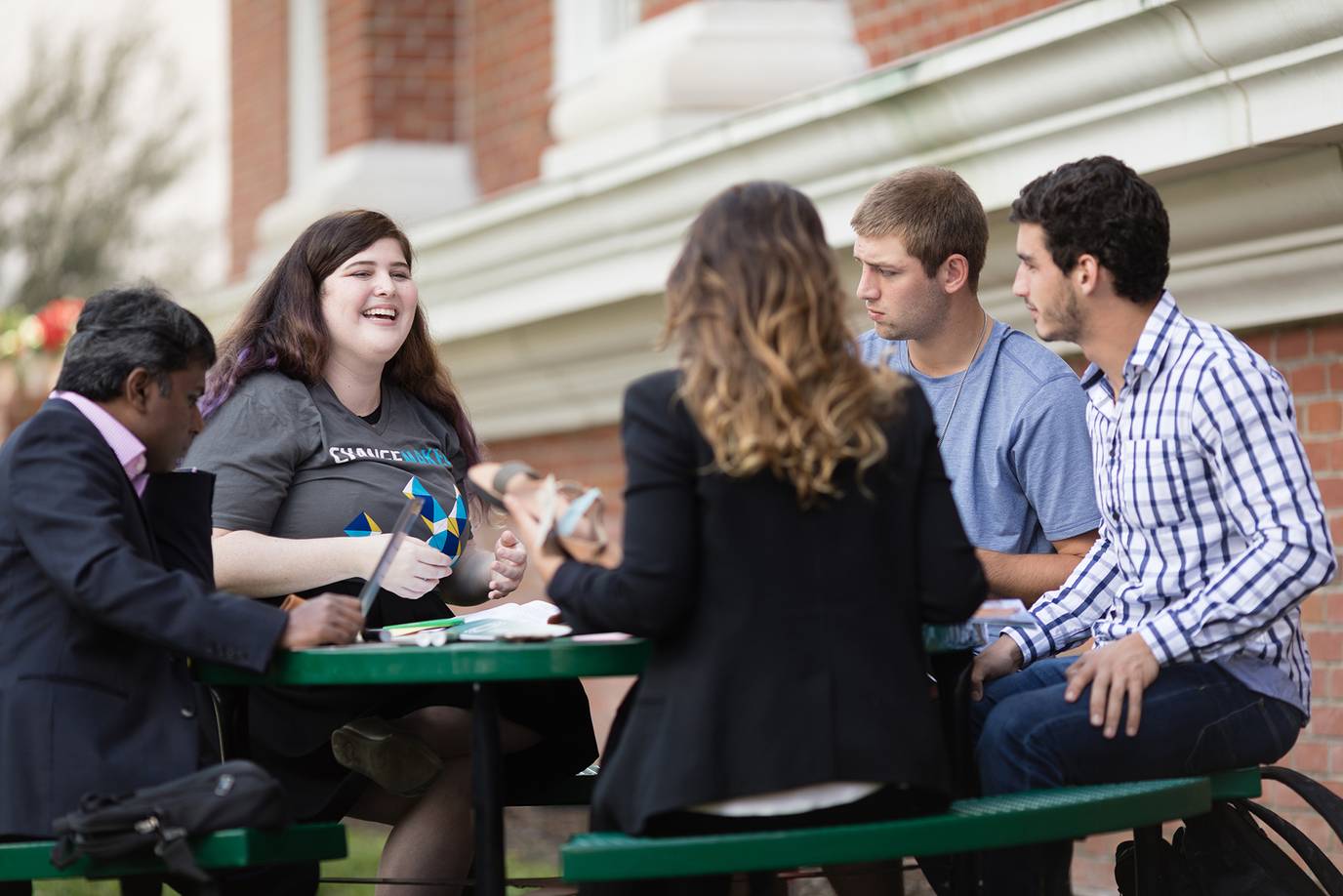
A new social entrepreneurship course takes aim at finding lasting solutions to enduring social problems.
Through role play and games in the classroom as well as partnership with a community partner on a real-world project, students come away from this community engagement course with two toolkits: the skills to analyze complex social challenges and the know-how to build possible solutions to those issues.
Course Title
Systems & Design Thinking for Social Change
Instructor
Raja Singaram, assistant professor, department of social entrepreneurship
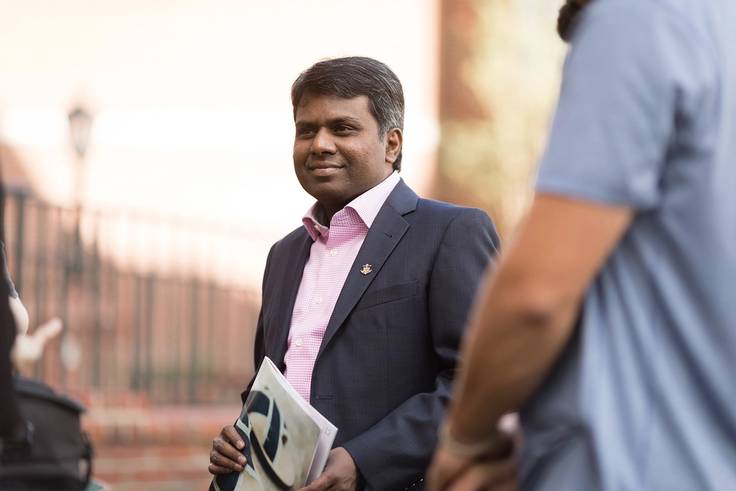
The Scoop
By analyzing the underlying web of systems that drive complex interconnections contributing to entrenched social problems, the students employ two cornerstones of systems and design thinking: empathy and experimentation.
And they put their newly acquired skills to work in the real world, partnering on projects for three Orlando-based social enterprises: Grow Orlando, whose mission is to help low-income high school students graduate and develop life skills through plant cultivation; Deux Mains, an ethical fashion retailer that fights poverty by manufacturing products in Haiti; and Clean the World, a global health organization committed to improving the lives of vulnerable communities around the world.
“These community partners expect real results, so the students get invaluable hands-on experience and are part of the process,” says Singaram. “They go to meetings, write to stakeholders, and deal with unforeseen bureaucratic issues.”
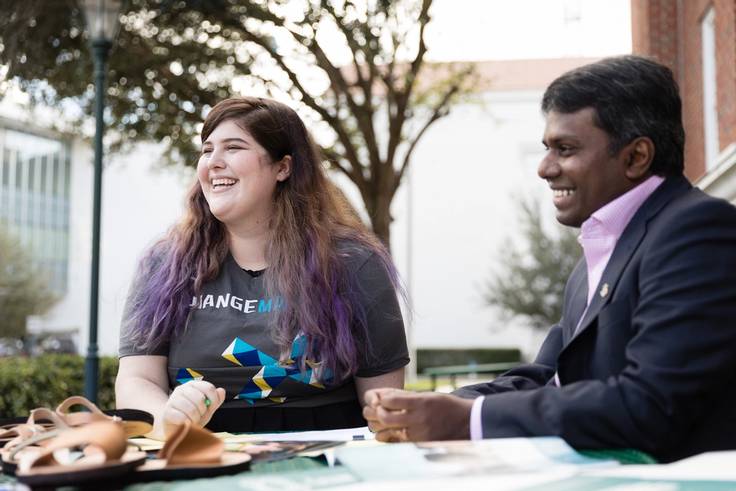
A hallmark of systems and design thinking—which focuses on a human-centered approach—is that big problems can’t be solved unless they’re examined on the community level—through the lens of the residents, the local government officials, the business leaders, etc.
“We must look at the whole system to have broad effects,” says Singaram. “These kinds of social problems are technically called ‘wicked’ problems because there are so many interdependencies. The causes and effects are systemic.”
In the case of gentrification in Orlando’s Parramore neighborhood, this means meeting the members of that community and understanding their perspectives.
“The biggest highlight of working with Grow Orlando was meeting with a gentleman who grew up in Parramore,” says business management major Brian Brooker ’18. “He explained that gentrification isn’t only caused by the rich and private sector, but that the residents of the community are also partly to blame. It taught me firsthand that not everyone is born into the same situation. What defines you as a person is how you handle your situation.”
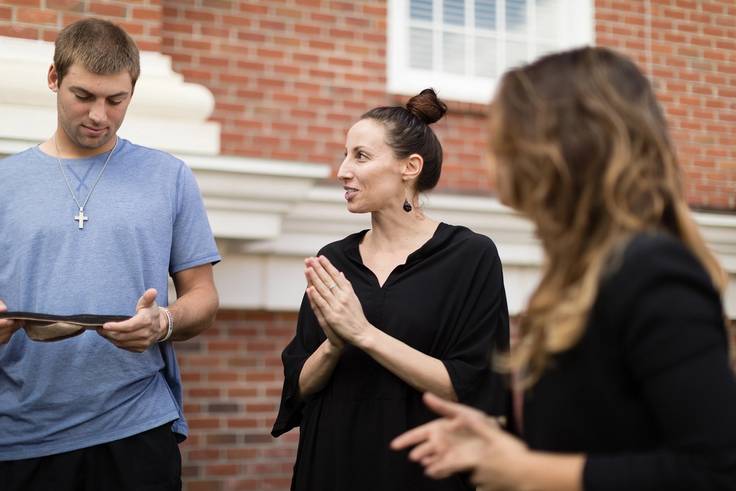
Snapshot
Through the eclectic fusion of repurposed tires and genuine leather, Deux Mains handcrafts fashion-forward footwear and accessories while providing living-wage employment and employee equity opportunities.
We spent the afternoon with a group of students working on securing ethical certifications for Deux Mains’ fashion line, getting a up-close look at what it really takes to make a positive social impact.
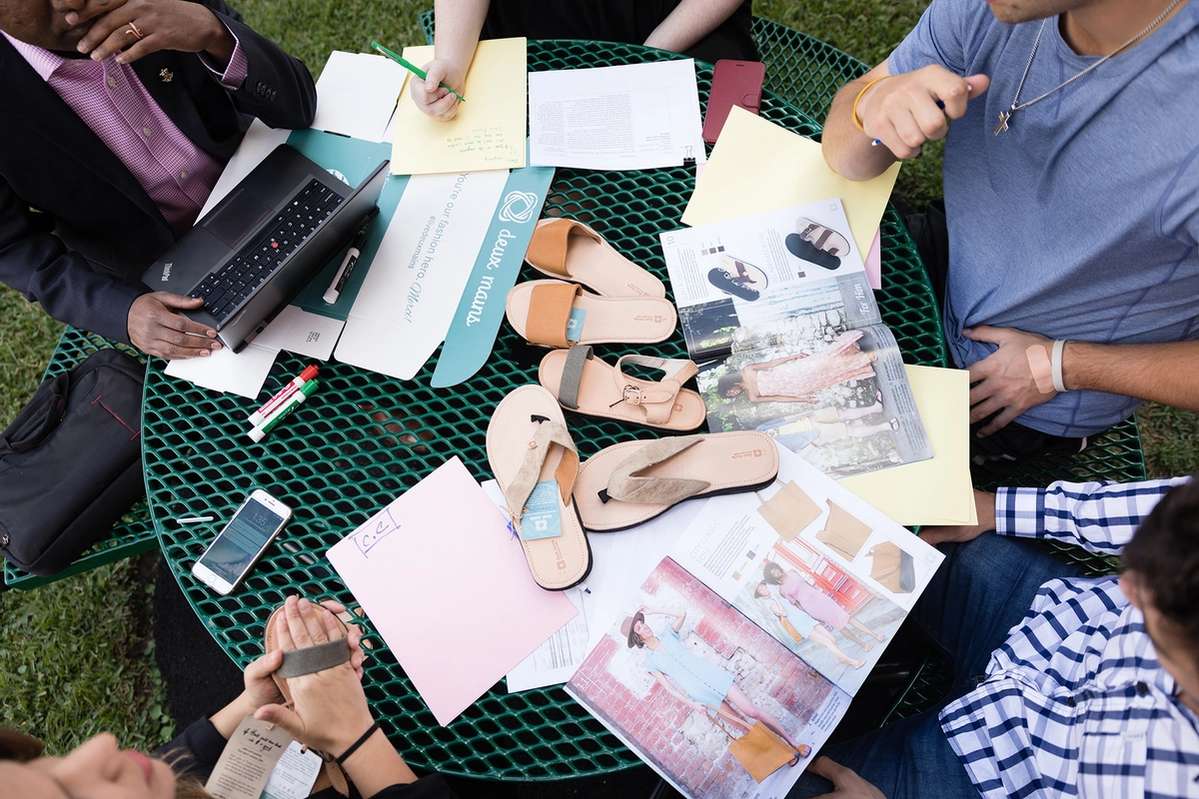
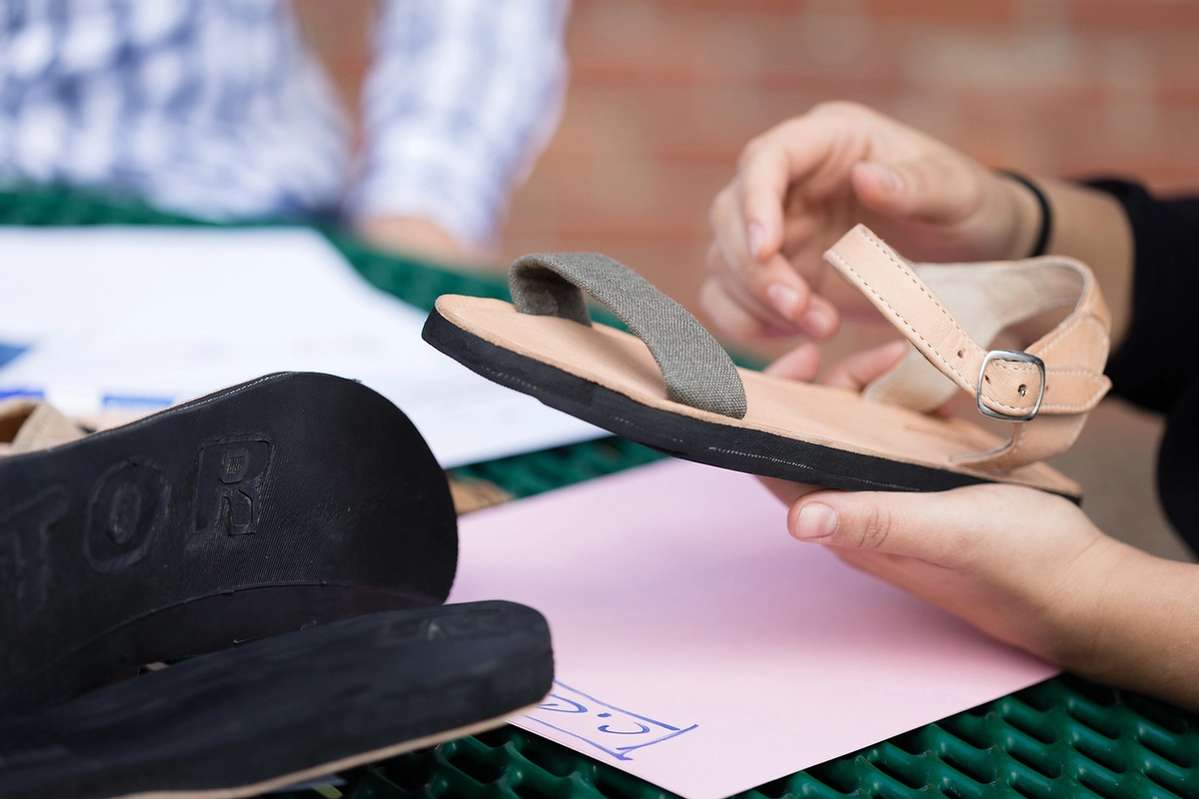
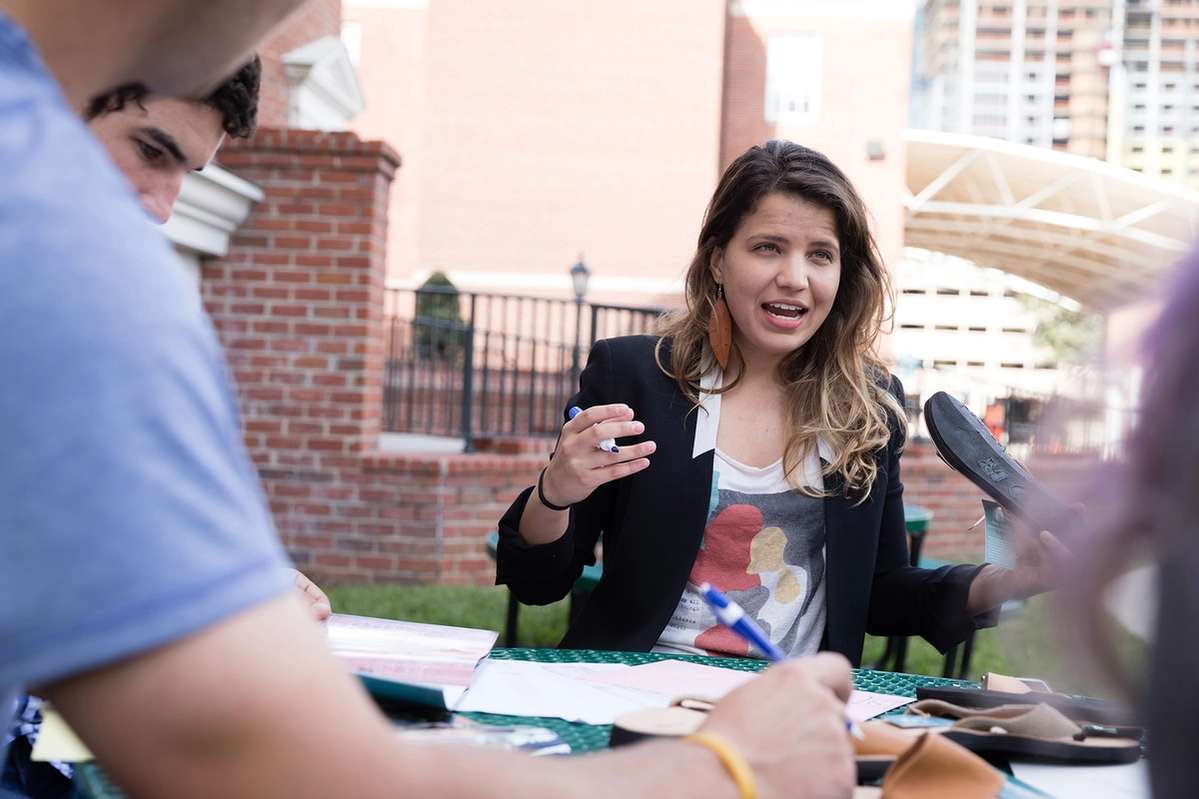
Social entrepreneurship major Nikki Hall-Elser ’18 explains how the fashion industry is the world’s second-largest polluter and how many fast-fashion companies claim to be “green” when in actuality they’re part of the problem.
“Deux Mains successfully competes as an ethical fashion retailer in an industry clouded by poor practices,” says Hall-Elser. “The company doesn’t compromise the dignity of its workers or increase its ecological footprint for the sake of competition. I am inspired by Deux Mains’ dedication to positively impact the people of Haiti, and I have a much greater appreciation for social enterprises because of this experience.”
Student Perspective
“The project with Deux Mains has influenced me to explore business analytics and consulting for social enterprises as a career,” says Hall-Elser. “I really enjoyed diving into the research and determining how best I could help the company continue its positive work by ensuring they secured the proper certifications.”
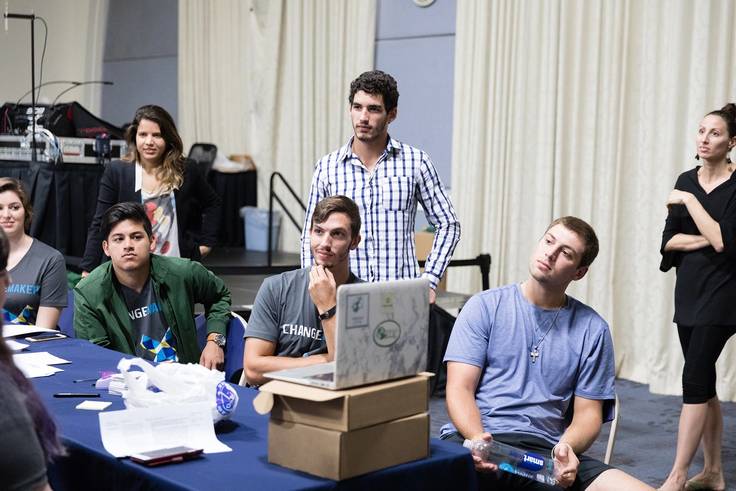
Brian Brooker ’18—whose work with Grow Orlando dealt with gentrification in the Parramore neighborhood of Orlando— also found this project to be transformative and eye-opening.
“My biggest takeaway from this project is that for anything to work, all parties need to be involved and have a shared vision of the future,” says Brooker. “Organizations need to disregard their underlying incentives and work to actually make a difference rather than only improving conditions for themselves.”
Did You Know?
According to the World Bank, 10 percent of the world’s population lives with less than $1.90 a day, deaths during migration movements are estimated at more than 5,000, and global waste is forecasted to hit 11 million tons by 2100. Yet social entrepreneurs comprise only 5 percent of all the entrepreneurs in the world.
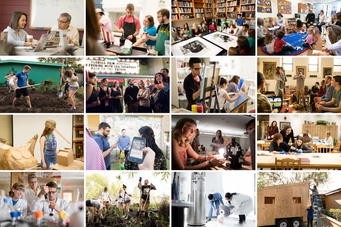
Read More
July 08, 2024
Gunter’s Book on Climate Change Receives Multiple Awards
Political science professor Mike Gunter’s book Climate Travels recently won awards from Foreword magazine and the American Library Association.
June 27, 2024
Lahlou ’24 Earns Boren Scholarship
Adam Lahlou ’24 has earned a Boren Scholarship, a prestigious award reserved for students who intend to pursue careers in federal national security.
June 17, 2024
A Path to Purpose
Falecia Williams ’91 expanded her world by earning a Rollins degree. Now, she is working to expand the worlds of thousands of college students.
